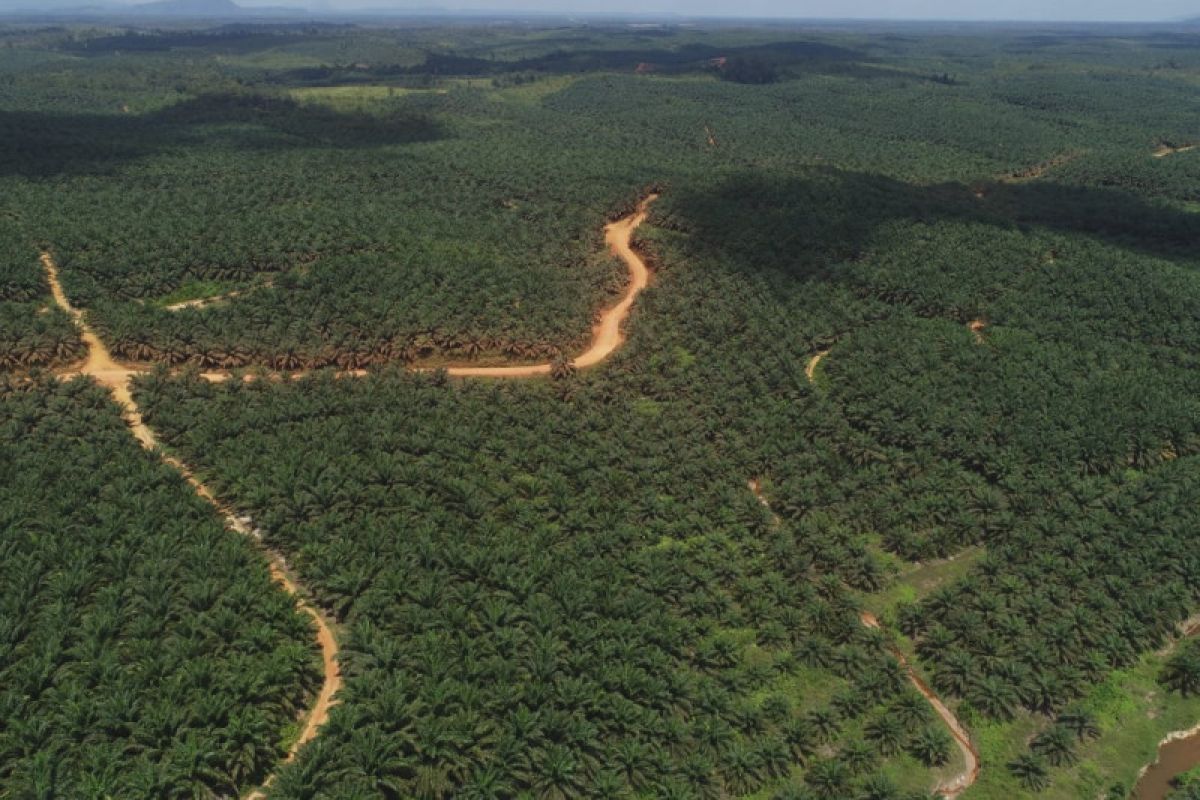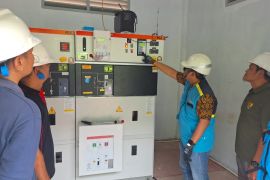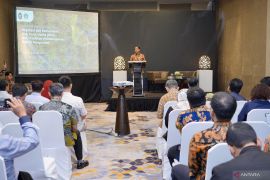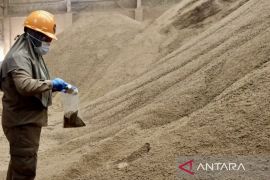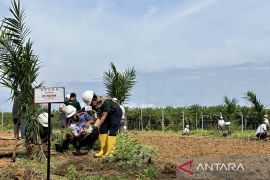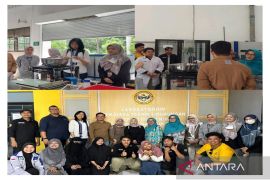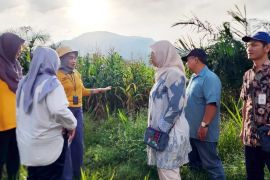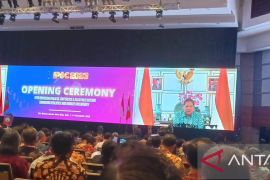Jakarta (ANTARA) - President of Indonesia Joko Widodo (left) and some high-rank officials observe a gas station attendant refueling a vehicle with 30 percent blended biodiesel in Jakarta, Monday (Dec 23, 2019). ANTARA/Agus Salim/gtm
"For the last two years, we have replanted a large number of small privately owned palm oil plantations," the president stated while divulging his plan at a ceremony to launch the 30 percent blended biodiesel (B30) program in Jakarta, Monday.
Despite the Indonesian government stalling the issuance of a new permit for palm oil plantations since last year, the president yet expects to increase the yield of the commodity by two folds.
"We have complied with the moratorium policy, but the palm oil production per hectare land must be doubled. If the yield now is nearly four tons per hectare land, we must find a solution to produce at least seven to eight tons per hectare land of palm oil plantation," Jokowi explained.
The head of state revealed that funding to conducting re-plantation will come from the Indonesian Oil Palm Estate Fund (BPDP-KS) that will allocate Rp20 trillion (equivalent to US$1.4 billion) for the program.
The sharp drop in the price of CPO in the global market in the past years has failed to dampen the president’s keenness to step up the yield of palm oil for domestic use, chiefly for biofuel production.
"By using palm oil for biofuel, we will be less dependent on demands from export markets," he stated.
The Government of Indonesia officially launched the use of 30 percent blended biodiesel (B30) at a gas station in Jakarta, Monday, in a bid to increase the use of palm oil and save US$4.8 billion in foreign exchange in 2020.
Related news: Indonesia prepares for upcoming palm oil suit trial at WTO
Related news: Jokowi highlights rationale behind expediting biodiesel program
Related news: Jokowi officially launches B30 program at gas station in Jakarta


